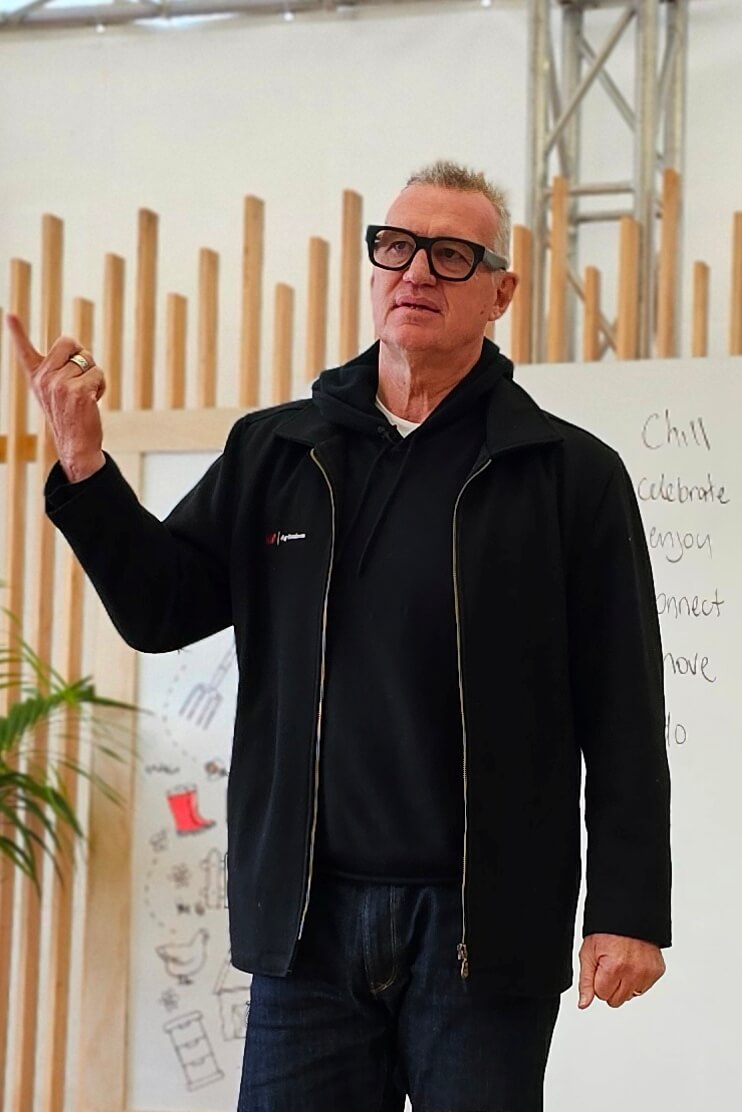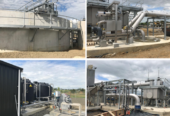Mental health advocate and former All Black John Kirwan spoke about the day he visited a farm and admired the cracking view. All the farmer could see was debt and bad weather. Mary Anne Gill finds out how to combat that with a worry map.
Former All Black John Kirwan runs through how to cope with burnout and depression by chilling, celebrating, enjoying, connecting, moving and doing. Photo: Mary Anne Gill.
Farmers have virtually no control over the most important things that happen around their farms, but they can ensure they don’t take over their lives.
That was the take home message from John Kirwan, 59, who readily admitted to farmers at Fieldays recently that he knows nothing about farming, but experience has taught him how to look after his mental health.
“Most farmers are quite introverted, you sleep and work with your business partner. When you get put under pressure, you work harder because that’s what you think you should do, so you don’t take any time off.
“You are normally isolated, and you have no control over the most important things around your farm. Things like milk, wool, sheep and beef prices.
“All of these things are out of your control. That is challenging for your mental health so you should take control,” said Kirwan, who was knighted in 2012 for services to mental health and rugby.
He was at Fieldays with Westpac, the bank he has been an ambassador for since 2013 sharing his experience of suicide ruminations, depression and tools to cope.
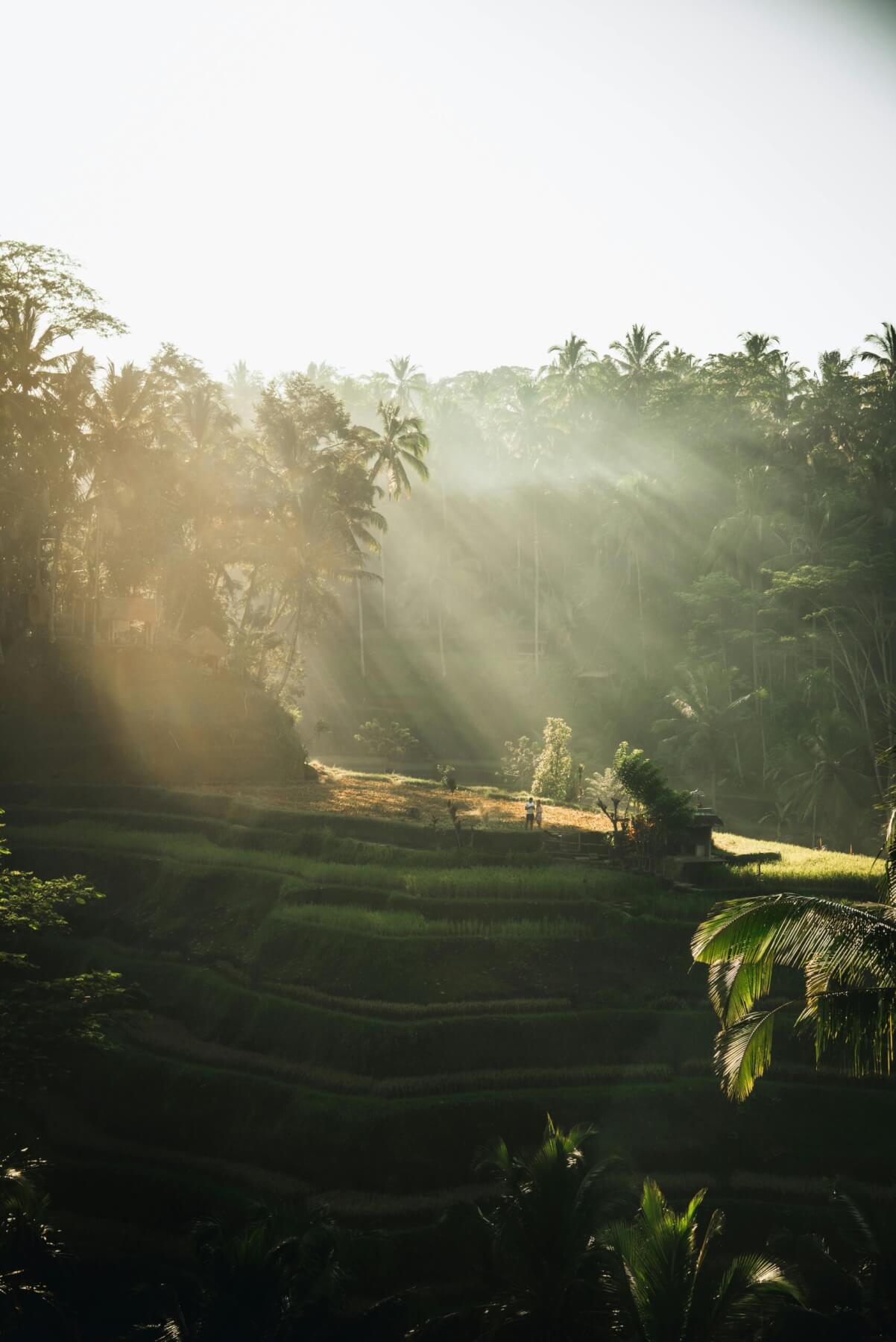
Appreciate views on the farm rather than worry about things out of your control, John Kirwan says. Photo: Tiago Cardoso, Creative Commons.
“The rural industry is one of the hardest industries in the world. It’s the backbone of our country. How many times do you say to yourself at the end of every day – you are awesome.”
Anxiety, depression and burnout takes away your self-confidence, enjoyment in life and your self-esteem, he said.
“A minute feels like an hour, an hour feels like a day and a day feels like a week,” he said. “So, by the end of every day, you’ve got no confidence, no self-esteem, no enjoyment in life and you’re incredibly tired.
“I went to a farmer’s place once. This farmer was in a bad way.
“I looked out his window and I said to him ‘wow I would pay $250 a night for this’. All he could see was debt, all he could see was weather, all he could see was what needed to be done on the farm.”
Farmers feel they need to keep working, just keep going.
“All the stresses of being a farmer takes over from the actual enjoyment. Ask yourself, what are you doing for your brain outside of your job.”

John Kirwan
One of the most important things is to connect with your community which can be hard because farmers are often isolated both in distance from their community and in the way they keep working, Kirwan told participants at his Mystery Creek seminar during Fieldays in June.
“You come off the farm, you’ve got admin. Our jobs are never done. There’s no work life balance anymore, there’s just life.
“We’re always going to what we haven’t done.”
Kirwan openly speaks about his battle with depression and when it came to a head. He was in Argentina in 1985 on an All Blacks tour when he scored six tries, including four in two test matches.
“There was a window open, and I was on the 10th floor of the Hilton in Buenos Aires. I was sick of fighting the suicidal ruminations. I was plucking up the courage to jump out of the window.”
It was only the intervention from his roommate Michael Jones which stopped him.
“JK, you’ve got a good heart,” he told him.
“He saved my life. I played a test match the next day and scored two tries. It was irrelevant.”
Kirwan plucked up the courage to tell the All Blacks’ doctor John Mayhew who told him what the winger had was an illness, not a weakness and he needed to see an expert.
So, Kirwan consulted a psychologist – the first one he saw did not work, the two did not connect.
But the second did and she asked him what he would do if he had a hamstring injury and he said he would ice it.
“Your brain is no different, you’ve got a hamstring in the head,” she said.
“I used to use alcohol as the ice.”
After several consultations, Kirwan was able to accept he had a problem. She prescribed him an anti-depressant and then started to take him through the six pillars of wellbeing.
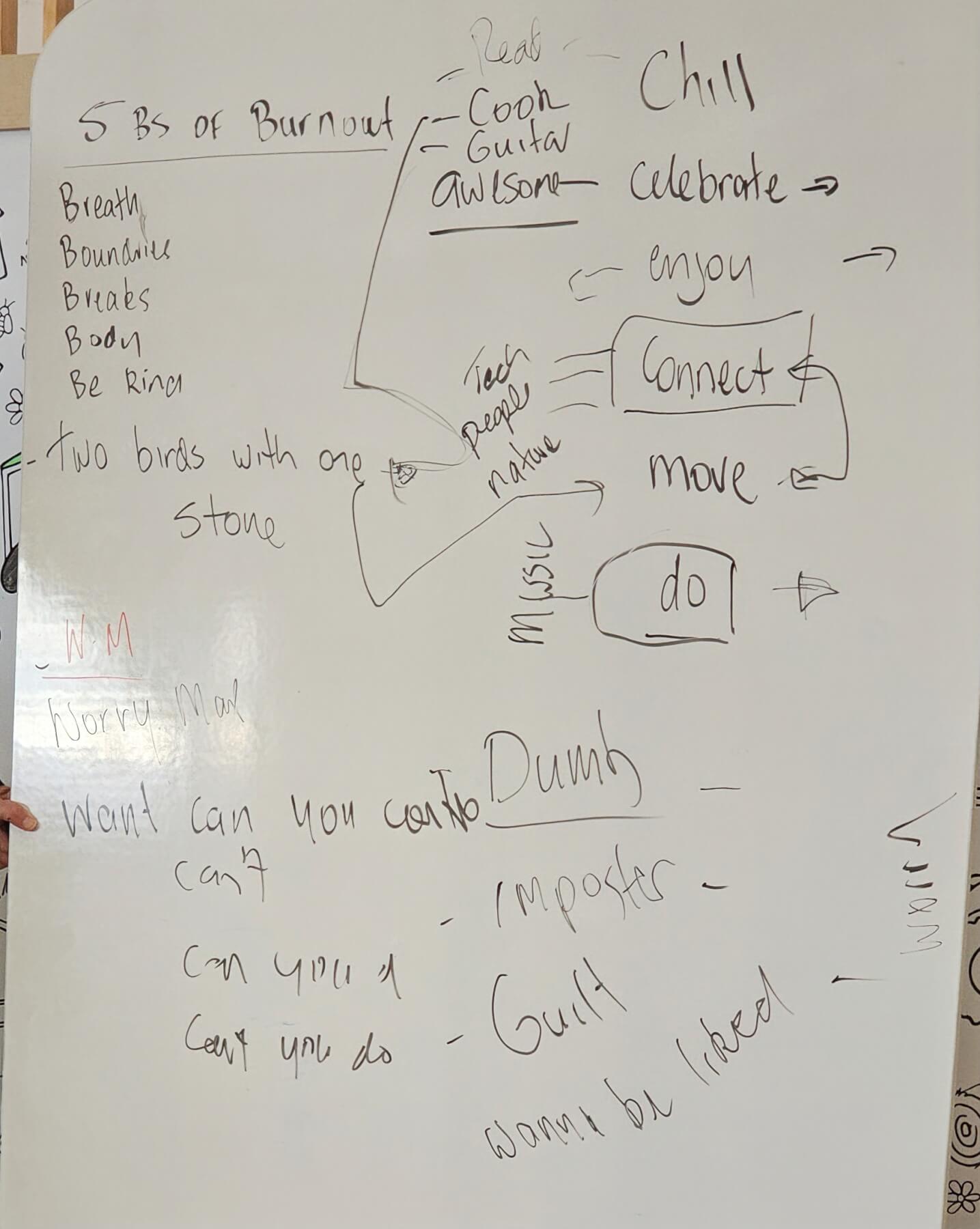
Day two Fieldays 2024
Emotional, physical, financial, social, intellectual and spiritual.
“I’ve gone from surviving to thriving. I look after my mental health every day. It’s made me a better dad, better husband, better workmate, better me.”
Farmers could look at what they can control not what they cannot control.
“When I started writing things down, I had 100 worries.
“Out of the 100, probably 90 of them I couldn’t control.
“I spoke to a whole lot of farmers and asked them, ‘who controls the milk prices? Who controls the weather? God whatever, not us.’
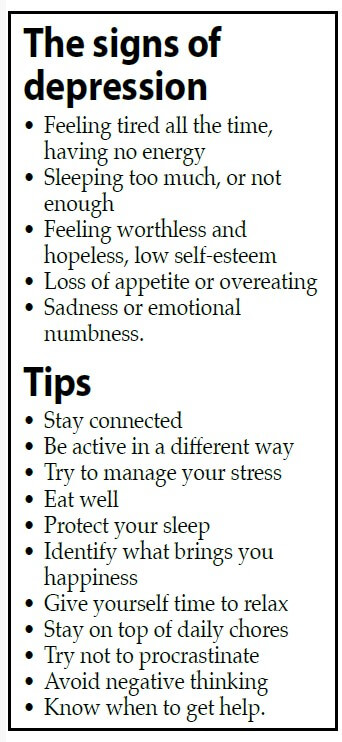
How to spot the signs of depression and tips to cope
Farmers cannot control the weather, but they could prepare and have a plan, a worry map. Like everyone farmers could try chilling, celebrating, enjoying, connecting, moving and doing.
Kirwan is learning how to play the guitar, he admits he is bad at it but it helps him. He cooks, reads, walks the dog, surfs and moves.
“Do one thing in our day ……. once you’ve done DOT, then do DAT (do another thing). Be aware of when you are under pressure.”
Knowing the signs was important.
“Your first stop is to find some time, some time to reflect,” said Kirwan and to connect.
“Who’s so busy you can’t connect with your partner. Stress and pressure can make you feel alone, but connecting with people can make you feel alive.”
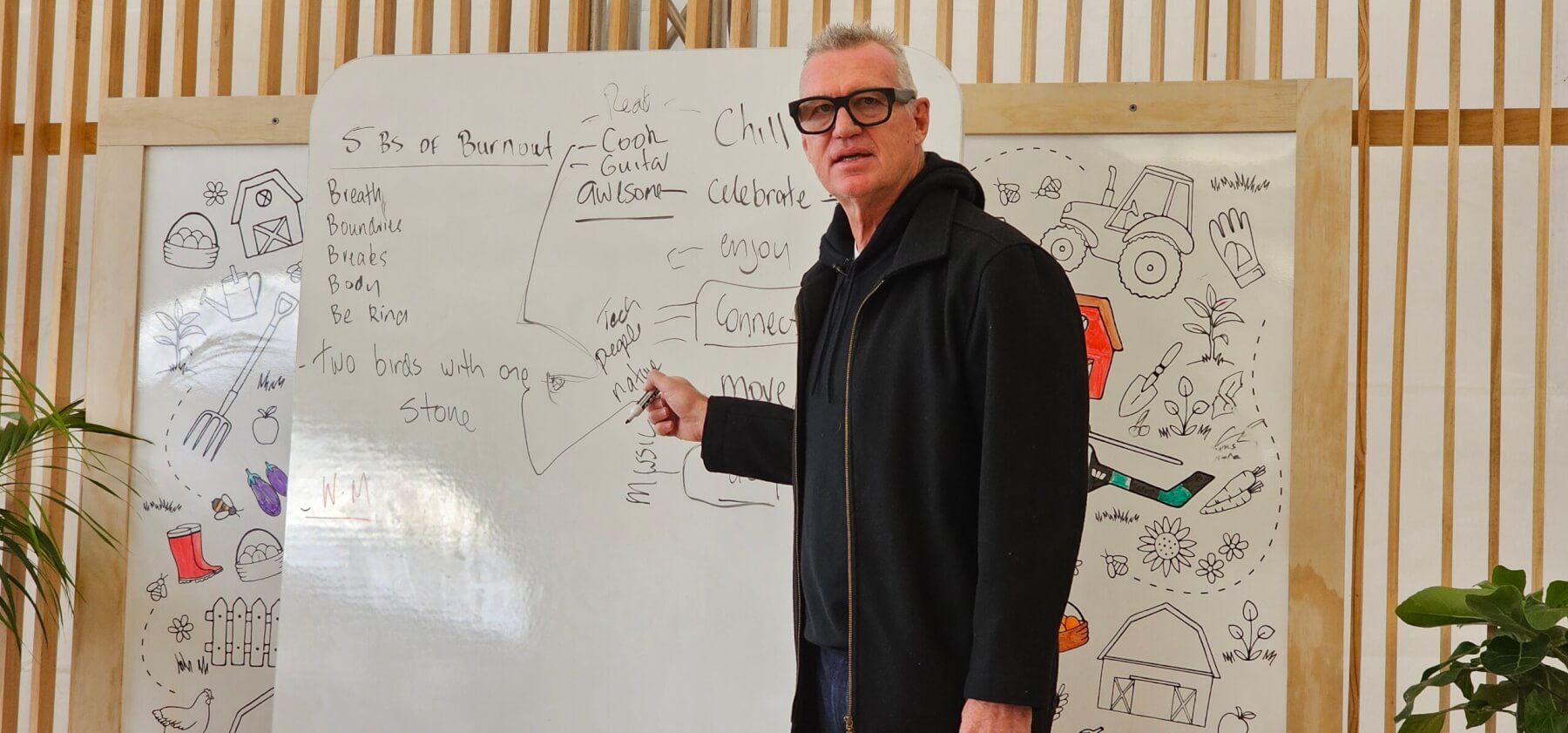
Former All Black John Kirwan runs through how to cope with burnout and depression by chilling, celebrating, enjoying, connecting, moving and doing. Photo: Mary Anne Gill.



